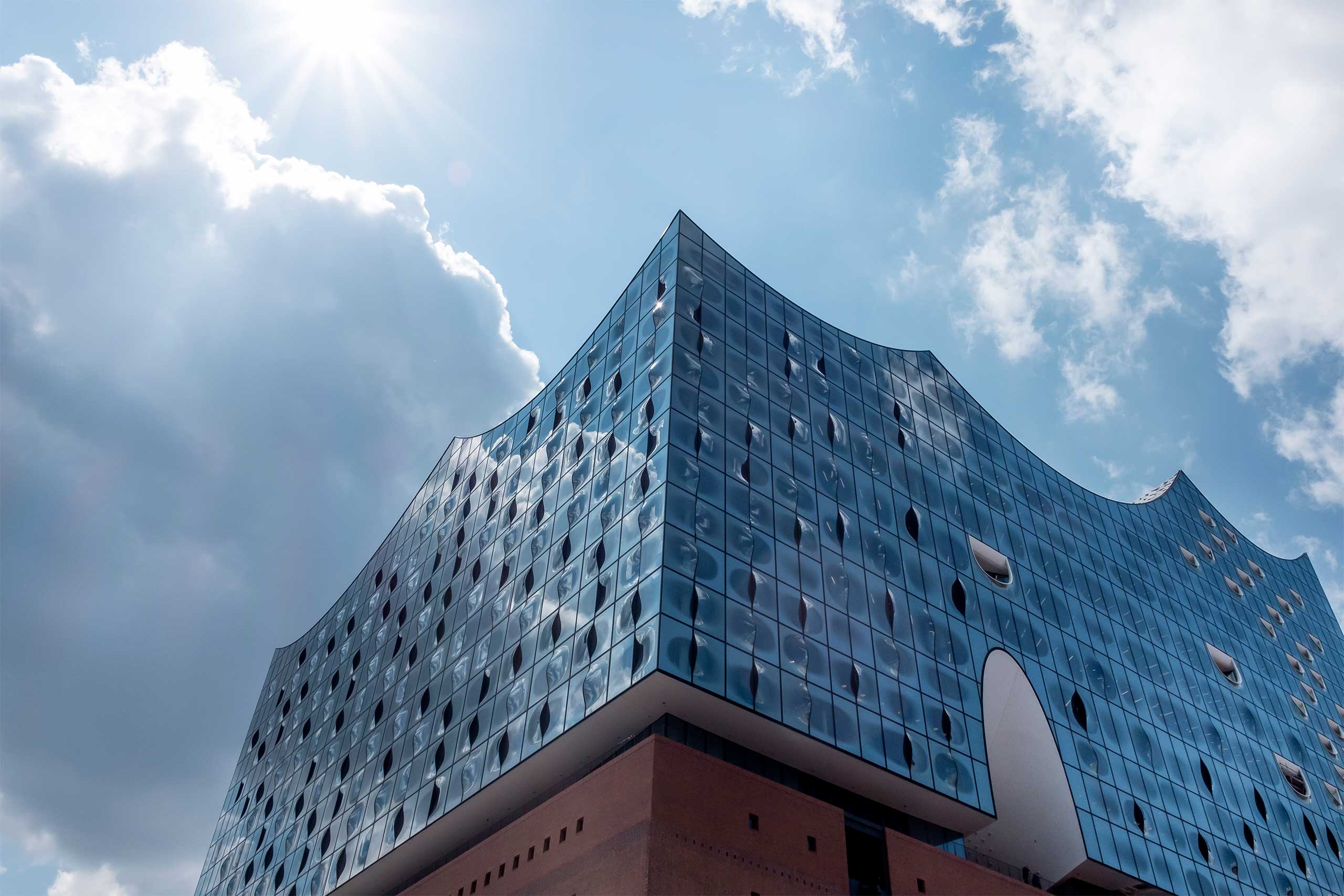
Project countryGermany
Project locationHamburg
Builder Elbphilharmonie Hamburg Bau GmbH & Co. KG
Architect Herzog & de Meuron
Structural engineerWGG Schnetzer Puskas Ingenieure
Executing companyHochtief
To begin with, project developer, Alexander Gérard, had an idea. The final result is a building, that works like a natural force: The Elbphilharmonie in HafenCity, Hamburg, has a radiance that reaches well beyond the borders of Germany, and even Europe.
After construction of the building was completed in November 2016, more than 850,000 people attended concerts, 4.5 million people went sightseeing, to marvel at the impressive architecture, and 70,000 people participated in the guided tours of the concert hall – all in the first year of operation, 2017.
The construction and design of the building are anything but mundane. Originally, the building was meant to be based on the storehouse of the original philharmonic orchestra house; today, the only remaining constituents of the new building are the facade and parts of the old foundations. The baseplate is laid on 1732 posts, which were rammed deep into the bed of the Elbe.
The Elbphilharmonie has 26 storeys, and it is a total of 110 meters in height. In view of the number of storeys, it is understandable that the Cobiax voided flat plate slabs are of considerable value for the building.
Thanks to the Cobiax technology, it was possible to limit the entire weight of the Elphi, as the Hamburgers fondly refer to their new landmark, to 200,000 tons – only by reducing the weight of the slabs and the resultant reduction in the load of the entire building, made the construction of such an elegant building possible.